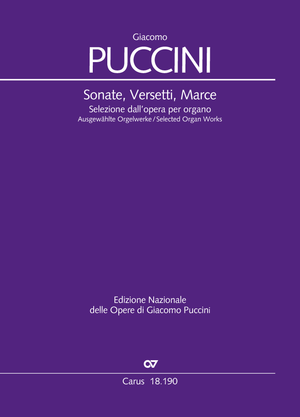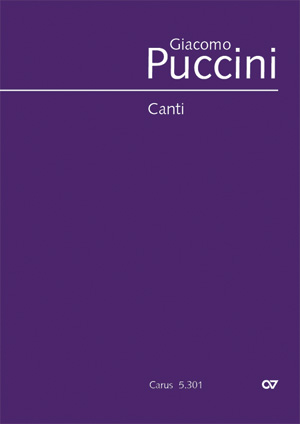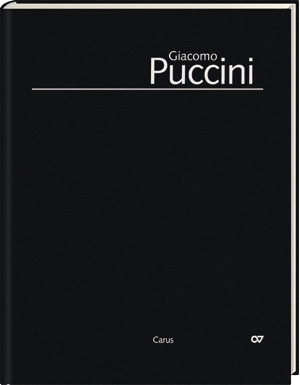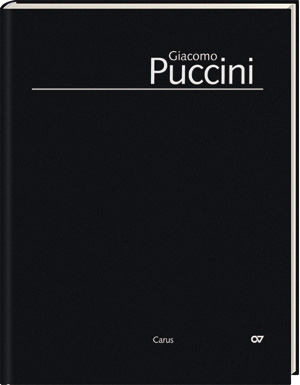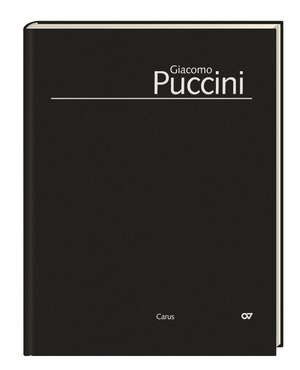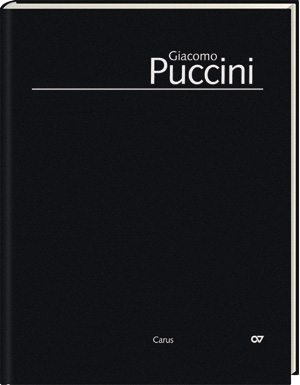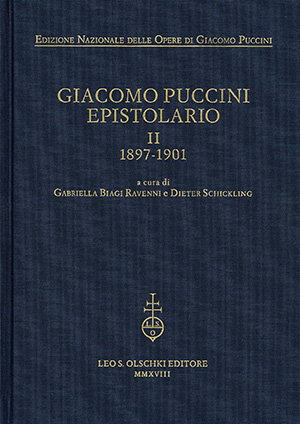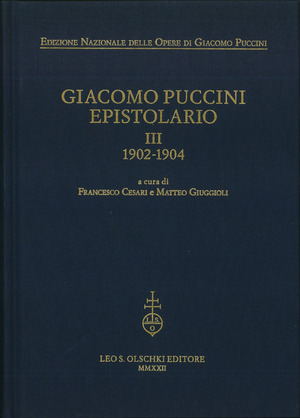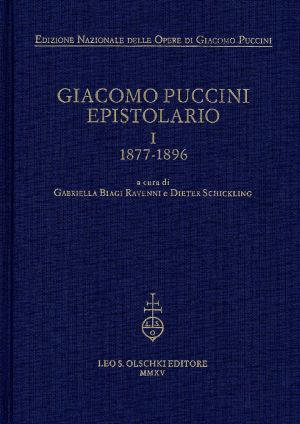
Epistolario I, 1877-1896
Edizione Nazionale Delle Opere di Giacomo Puccini
The first volume contains 784 letters, 150 of which are published for the first time. The majority of the others have been newly transcribed, corrected through comparison with their sources, or with improved dating in the frequent cases of undated autographs.
The collection conveys an image of twenty years in the life and career of Giacomo Puccini marked by radical changes. It documents the interlaced relationships with his friends and family, the ambition and difficulties he endured to sustain them, his brave existential choices. On the professional side, it illustrates the final part of his studies and his artistic growth, from Le Villi, to Edgar, to the first undisputed success of Manon Lescaut, to the final consecration of La Bohème. The letters included in this volume are also documents of the creation of Puccini’s peculiar writing qualities. The variety of addressees and of themes is matched, in fact, by a variety of tones and styles. Tender, friendly, confidential tones alternate with formal, professional, deferential, or even soapy accents. The letters mix everyday chronicles, common requests, scholarly quotes, bawdy language, and invectives. A penchant for poetry appears in the recurring rhymes that peep out in his prose, transforming the letters in poems, especially as a reply to other poetical messages. A strong graphic inspiration shines through his habit of using pictures instead of some key words, and through his original use of the space of sheets and postcards.
Published by Olschki, Florence
Purchase
Additional product information
-
Author
Giacomo Puccini
| 1858-1924Giacomo Puccini came from a dynasty of church musicians who worked in the Tuscan city of Lucca. His Messa a 4 con orchestra, premiered there in 1880, seemed to point him toward a career in the same direction, but directly after this, he went to Milan Conservatoire with the aim of becoming an opera composer. His only independent orchestral works were written there as student works – the Preludio sinfonico (1882) and Capriccio sinfonico (1883), as well as some of his 16 complete surviving songs for voice and piano (Canti), which he composed, with frequent references to his operas, almost throughout his career. He achieved a breakthrough as an opera composer with Manon Lescaut (1893); between 1893 and 1904 he composed La Bohème, Tosca and Madama Butterfly, which remain his most frequently-performed works today. In recent years there has been a growing realisation that Puccini's entire output requires reappraisal. And so, he has increasingly come to be understood as a musician searching for a way forward into the modern age. Personal details
-
Editor
Gabriella Biagi Ravenni
-
Editor
Dieter Schickling
| 1939-2023Nach dem Studium der Germanistik,Anglistik und Philosophie und der Promotion in Germanistik war Dieter Schickling hauptsächlich für das Fernsehen des Süddeutschen Rundfunks Stuttgart tätig, zuletzt als Leiter der Hauptabteilung Bildung, Spiel, Unterhaltung. Seine intensive Auseinandersetzung mit Musik führte zu langjähriger Forschung über Puccini,die in verschiedene Publikationen mündete, u.a. das erste umfassende Werkverzeichnis Puccinis, 2003. Personal details
Frequent questions about this work
 There are no questions and answers available so far or you were unable to find an answer to your specific question about this work? Then click here and send your specific questions to our Customer Services!
There are no questions and answers available so far or you were unable to find an answer to your specific question about this work? Then click here and send your specific questions to our Customer Services!


